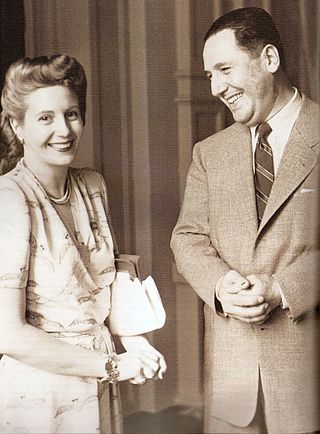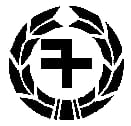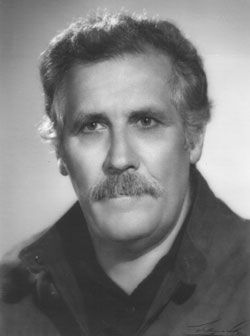Related Research Articles

Peronism, also known as justicialism, is an Argentine ideology and movement based on the ideas, doctrine and legacy of Argentine ruler Juan Perón (1895–1974). It has been an influential movement in 20th- and 21st-century Argentine politics. Since 1946, Peronists have won 10 out of the 14 presidential elections in which they have been allowed to run. Peronism is defined through its three flags, which are: “Economic Independence”, “Social Justice” and “Political Sovereignty”.

The Communist Party of Argentina is a communist party in Argentina. It is a member of the Unión por la Patria, the former ruling coalition which supported former President Alberto Fernández.
A national trade union center is a federation or confederation of trade unions in a country. Nearly every country in the world has a national trade union center, and many have more than one. In some regions, such as the Nordic countries, different centers exist on a sectoral basis, for example, for blue collar workers and professionals.

The International Workers League (Fourth International) (Spanish: Liga Internacional de los Trabajadores (Cuarta Internacional), or LITci; Portuguese: Liga Internacional dos Trabalhadores - Quarta Internacional, or LIT-QI), also known as IWLfi, is a Morenist Trotskyist international organisation.
The International Workers' Association – Asociación Internacional de los Trabajadores (IWA–AIT) is an international federation of anarcho-syndicalist labor unions and initiatives.

Uruguaiana is a municipality in the Brazilian state of Rio Grande do Sul. It is located on the eastern shore of the Uruguay River bordering Argentina. Opposite to Uruguaiana, and joined to it by a road/railway bridge, lies the Argentine city of Paso de los Libres, Corrientes. North of Uruguaiana lies the Brazilian municipality of Itaqui, connected by a bridge constructed by the British in 1888 over the Ibicuí River. The municipality also borders the municipalities of Alegrete, Barra do Quaraí and Quaraí, and, also, Uruguay, making it one of the few international triple-border municipalities of Brazil.

Sinesio Baudillo García Fernández, commonly known by his pseudonym Diego Abad de Santillán, was a Spanish Argentine anarcho-syndicalist economist. Born in León, his family moved to Argentina while he was young. He returned to Spain for his higher education and became involved in the Spanish anarchist movement. After his studies, he went back to Argentina and became involved with the Argentine Regional Workers' Federation (FORA), co-founding the International Workers' Association (IWA). Following the 1930 Argentine coup d'état and the establishment of the Second Spanish Republic, he again went to Spain, becoming involved in the Iberian Anarchist Federation (FAI). During the Spanish Civil War, he served in the Catalan government as Minister of Economy. After the war, he returned to Argentina and largely ceased political activities, going back to Spain only after the Spanish transition to democracy.

Partido Nuevo Triunfo was a small far-right and Neo-Nazi political party in Argentina banned on 17 March 2009 through a ruling by the Argentine Supreme Court of Justice.

The Argentine Regional Workers' Federation, founded in 1901, was Argentina's first national labor confederation. It split into two wings in 1915, the larger of which merged into the Argentine Syndicates' Union (USA) in 1922, while the smaller slowly disappeared in the 1930s.
The following outline is provided as an overview of and topical guide to anarchism:

The Argentine anarchist movement was the strongest such movement in South America. It was strongest between 1890 and the start of a series of military governments in 1930. During this period, it was dominated by anarchist communists and anarcho-syndicalists. The movement's theories were a hybrid of European anarchist thought and local elements, just as it consisted demographically of both European immigrant workers and native Argentines.

The Continental American Workers Association was an anarcho-syndicalist trade union confederation that functioned as the Latin American branch of the International Workers' Association.

Argentina, officially the Argentine Republic, is a country in the southern half of South America. Argentina covers an area of 2,780,400 km2 (1,073,500 sq mi), making it the second-largest country in South America after Brazil, the fourth-largest country in the Americas, and the eighth-largest country in the world. It shares the bulk of the Southern Cone with Chile to the west, and is also bordered by Bolivia and Paraguay to the north, Brazil to the northeast, Uruguay and the South Atlantic Ocean to the east, and the Drake Passage to the south. Argentina is a federal state subdivided into twenty-three provinces, and one autonomous city, which is the federal capital and largest city of the nation, Buenos Aires. The provinces and the capital have their own constitutions, but exist under a federal system. Argentina claims sovereignty over the Falkland Islands, South Georgia and the South Sandwich Islands, the Southern Patagonian Ice Field, and a part of Antarctica.

Juan Domingo Perón was an Argentine lieutenant general, politician and statesman who served as the 29th President of Argentina from 1946 to his overthrow in 1955, and again as the 40th President from October 1973 to his death in July 1974. He is the only Argentine president elected three times, and holds the highest percentage of votes in clean elections with universal suffrage. Perón is the most important and controversial Argentine politician of the 20th century, and his influence extends to the present day. Perón's ideas, policies and movement are known as Peronism, which continues to be one of the major forces in Argentine politics.

Virginia Bolten (1870–1960) was an Argentine journalist and anarchist feminist activist. An anarchist agitator from an early age, she became a leading figure among the working women of Rosario, organising for the Argentine Regional Workers' Federation (FORA) and leading the first women's strike in the country's history. After being recruited into the anarchist movement in Buenos Aires by the Italian anarchist Pietro Gori, she joined some of the country's first anarchist women's organisations and established one of the world's first anarchist feminist periodicals: La Voz de la Mujer.

On 20 October 2010, Argentine student and Trotskyist activist Mariano Ferreyra was shot dead in Buenos Aires by members of a railway workers union.
Socialist Left, officially registered as the Left for a Socialist Option, is a Trotskyist political party in Argentina. It was founded in 2006 as a split from the Socialist Workers' Movement. It is the Argentine section of International Workers' Unity – Fourth International. It is one of three parties that make up the Workers' Left Front.

The Coordinating Committee for the Refoundation of the Fourth International (CRFI) was a Trotskyist international association. It was formed in 2004 at a conference in Buenos Aires called by the Movement for the Refoundation of the Fourth International. It had members in South America, Western Europe and the Middle East. The committee had nine members from Argentina, Chile, Greece, Italy, Mexico, Uruguay, Turkey, Finland and Venezuela. They included Jorge Altamira, Savas Matsas, Sungur Savran and Marco Ferrando.

Nahuel Moreno was a Trotskyist leader from Argentina. Moreno was active in the Trotskyist movement from 1942 until his death.
Anarchism in Uruguay held a major importance in the organization of the labor movement. The history of the libertarian movement in Uruguay was closely linked to issues circulating internationally: the immigration of Spanish and Italian workers in particular had a major influence in its development, but the relations between revolutionary movements across Latin America, and in particular with Argentina and Brazil were equally significant.